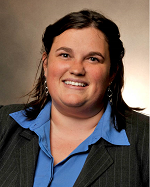Slaughter and Processing in the United States: Oversight and Requirements
Topic:


The processing of livestock- which includes animals such as cattle, sheep, swine, and goats- is governed on a national level by the Federal Meat Inspection Act. Similarly, the processing of poultry, including chickens, turkeys, ducks and geese is governed by the Poultry Products Inspection Act. In those laws, USDA-FSIS is given primary authority for oversight of meat products that will be offered for sale. That authority, however, may be designated to a state agency in those states that chose to apply for such authority, as long as the state requirements are “at least equal to” those enforced by USDA-FSIS.
As a result, state meat inspection programs, in those states that have implemented them, add another layer of laws and regulations to meat slaughter and processing requirements. The resulting difference between the two approaches is that state inspection programs- with some exceptions- only allow for meat processed in these facilities to be sold within the state while FSIS inspected facilities can export meat to other states. Further, exceptions and exclusions such as those for custom slaughter plants and small poultry processing facilities may change the processing oversight and requirements even further.
Because of these variations, the requirements that processors must follow differ significantly depending on what services they intend to provide, who their customers are and in what state they operate. Small differences between processing facilities in the same area, such as one facility offering to smoke meat, can cause significant regulatory and inspection differences between the two facilities.
This webinar will discuss:
- The general outline of authority for slaughter and processing of meat and poultry
- The effective differences between state and federal processing oversight, including custom exempt slaughter
- Proposed federal bills that might change processing requirements in the United States
- Additional challenges facing small meat processors
Time and Date:
Wednesday, June 3rd, 2020
12:00 – 1:00 (EST)
Participation:
This webinar is offered free of charge and is limited to the first 100 registrants. It is recommended that you test your computer for software compatibility prior to the webinar by clicking here.
This webinar was recorded on June 3rd, 2020. To view a recording of this webinar, please click here.
Presenter:
Rusty Rumley is a Senior Staff Attorney at the National Agricultural Law Center. He was born and raised on a family farm in Cogar, Oklahoma. He graduated from Oklahoma State University with a B.S. in AgriBusiness and earned his juris doctor from the University of Oklahoma. After law school, Rusty earned his LL.M in Agricultural Law at the University of Arkansas. He is licensed to practice law in the states of Oklahoma and Michigan. Rusty has published law review articles discussing the future application of special use valuation for inherited farmland, “right to farm” statutes, and the enforcement of animal cruelty statutes by private organizations. He has also written on landowner liability, agritourism, food labeling, local food production, business organizations, crop insurance, estate planning, leasing, and other land use topics in his work at the Center. Further, Rusty presents around the country to producer, consumer, extension, industry and legal groups on an array of topics. His primary areas of interest are in estate planning, taxation, business organizations, landowner liability, leasing and agritourism.
Elizabeth Rumley is a Senior Staff Attorney at the National Agricultural Law Center in Fayetteville, Arkansas. At the Center, her primary research and scholarship focus is on legal issues in animal agriculture, and she frequently lectures on those issues and others to audiences nationwide. She has developed and is teaching a graduate/undergraduate level course on legal issues in animal agriculture at the University of Arkansas. Additionally, she teaches a course on Environmental Law in the Bumpers College. Further, she has co-taught a course covering “Animals and Agricultural Production, Law and Policy” at the University of Nebraska College of Law and the University of Oklahoma College of Law. She is licensed to practice law in Michigan, Ohio, and Oklahoma after earning her B.A. from Michigan State University, her J.D. cum laude from the University of Toledo College of Law, and her LL.M. in Agricultural Law from the University of Arkansas School of Law.
Research & Materials:
Meat Processing Laws: A State Compilation